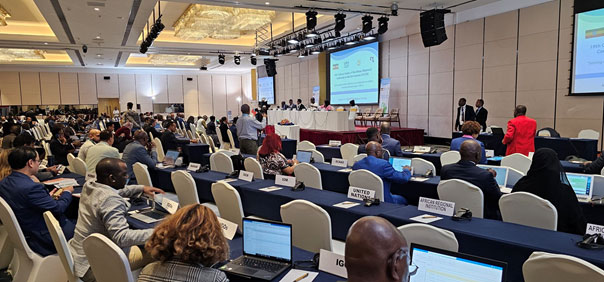US Senate votes to reauthorise controversial surveillance programme FISA | Government News
President Joe Biden expected to swiftly sign bill that lets intelligence agencies conduct electronic surveillance without seeking warrant.
The United States Senate has voted to approve the reauthorisation of a controversial surveillance programme widely used by US intelligence agencies abroad, but criticised by civil liberties organisations.
Senators voted 60-34 shortly after midnight to pass the bill, and the White House said President Joe Biden will “swiftly sign the bill into law”.
Section 702 of the Foreign Intelligence Surveillance Act, or FISA, enables US intelligence agencies to conduct electronic surveillance without seeking a judicial warrant.
In particular, it allows them to sweep up communications, including phone calls and emails, of non-Americans anywhere outside of US territory. That includes communications from US citizens to foreigners targeted for monitoring.
Its reauthorisation secures what supporters call a key element of US foreign intelligence gathering.
“Democrats and Republicans came together and did the right thing for our country’s safety,” Senate Majority Leader Chuck Schumer said.
“We all know one thing: letting FISA expire would be dangerous. It’s an important part of our national security, to stop acts of terror, drug trafficking and violent extreme extremism.”
Doubts and concerns
Though the spy programme was technically set to expire at midnight, Biden’s administration had said it expected its authority to collect intelligence and to remain operational for at least another year, thanks to an opinion earlier this month from the Foreign Intelligence Surveillance Court, which receives surveillance applications.
FISA has attracted criticism from both Republican and Democratic lawmakers, who argue it violates Americans’ constitutional right to privacy.
The bill was blocked three times in the past five months by House Republicans bucking their party, before passing last week by a 273-147 vote when its duration was shortened from five years to two years.
Although the right to privacy is enshrined in the US Constitution, foreign nationals’ data gathered by the programme often includes communications with Americans, and can be mined by domestic law enforcement bodies such as the FBI without a warrant. That has alarmed many.
Recent revelations that the FBI used this power to hunt for information about Black Lives Matter protesters, congressional campaign donors and US lawmakers have raised further doubts about the programme’s integrity.
In the past year, US officials have revealed a series of abuses and mistakes by FBI analysts in improperly querying the intelligence repository for information about Americans or others in the US, including a member of Congress and participants in the racial justice protests of 2020 and the January 6, 2021, riot at the US Capitol.
But members on both the House and Senate intelligence committees as well as the US Department of Justice said requiring a warrant would handicap officials from quickly responding to national security threats.
Check out our Latest News and Follow us at Facebook
Original Source







